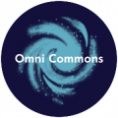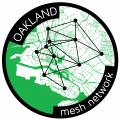|
|
I don’t normally write “reviews” of anything- I recommend music I like, utilize potent literature and films in my writing, and enjoy my fair share of television, but I don’t really esteem myself to have an expert opinion about anything when it comes to popular media. My cultural bankruptcy has been likened to the oft-utilized metaphor of the cave. Well then, I live in a cave. Wanna know why? Because so often when I emerge, I am bombarded by utter CRAP. The purpose of this post, therefore, is not to *review* the limp sentimental dishrag that is Across the Universe, but to warn you, fellow readers: this film is not the feel-good journey through the romanticized “hippie era” that you were expecting. My friends raved about it, the Internet gave me tantalizing treatises… but, sadly I will admit, I could not bring myself to even finish it.
The movie starts out cheesy, and for the first ten minutes my boyfriend and I wondered if the entire thing was to be composed solely of Beatle’s songs. At last, after a few random scenes meant to introduce us to the main character (through the lens of some of the early, simple romantic Beatle’s songs) we are granted some dialogue… it is disastrous. Much dancing ensues, the comparison that best comes to mind would be West Side Story, while we continue to wonder, “who are these people? who are we supposed to care about? what is he thinking?” Such questions would continue to arise throughout the movie, until we simply began to resort to pained grimaces and shared looks of horror.
Oh, there is one slightly redeeming scene that is salvaged only by the unique charisma of Eddie Izzard, but it too is laden with bizarre special effects (I suppose it is an attempt to create a more ‘psychedelic’ feel, but I’m not buyin’) that overwhelm the viewer in their complete noncomprehensiveness. In truth, each character is a flat icon of the Vietnam War period, obscured by a reliance on the sentimentality of the movie’s viewers meant to be evoked by the enormous popularity of the band that gave birth to pop culture as we know it today.
And the symbolism is horrid. Our hero, poor Liverpool boy Jude, expresses his angst about the war by tacking strawberries onto his wall. They bleed into a montage that reeks of stock footage as we’re launched into “Strawberry Fields Forever”. How poignant.
Yesterday, the Facebook team announced their plan to help users battle “application spam,” describing recently-added features they’ve added that many of you should find pretty appealing. It’s a good thing, because the bevy of e-mails and invitations I’ve received in the past few months has been a real turn-off for the vast majority of “veteran” users. High school students and MySpace converts enthusiastically SuperPoke one another, adorn each others’ profiles with “Graffiti,” and rank the “Hotties” amongst their Friends (capitalized because Friendship on online social networks is quite distinct from friendship). Other Internet enthusiasts and thinkers promote charitable organizations, ask Questions of their profiles’ visitors, and incorporate their various online presences (on MySpace, SecondLife, Twitter, etc . However, those who’ve been with Facebook since the beginning (older college students and recent alumni) have a very different relationship with the site. Sure, we may SuperPoke and turn you into a vampire every once and awhile, but for the most part, Facebook serves to keep in touch with college friends scattered across the globe, see what’s come of our high school classmates, take nostalgic journeys through the hundreds of pictures tagged with our names (de-tagging when appropriate), and keep our various networks of old friends informed about our post-college lives. . However, those who’ve been with Facebook since the beginning (older college students and recent alumni) have a very different relationship with the site. Sure, we may SuperPoke and turn you into a vampire every once and awhile, but for the most part, Facebook serves to keep in touch with college friends scattered across the globe, see what’s come of our high school classmates, take nostalgic journeys through the hundreds of pictures tagged with our names (de-tagging when appropriate), and keep our various networks of old friends informed about our post-college lives.
When Facebook began allowing anyone and everyone to join the site back in 2006 and added the News Feed, thousands of college students virulently protested: some quit the site completely, many joined Facebook Groups protesting the move, and practically everyone I know complained. In response, Facebook added a slew of privacy features, such as Limited Profiles (which I use liberally) and News Feed controls. With the advent of Applications, a similar wave of protest made itself evident through such groups as “fuck off… i don’t want to be a pirate/vampire/werewolf/zombie.” Nevertheless, the number of Application exponentially increased, growing increasingly manipulative and tricksy. Many applications, particularly quizzes, practically force users to invite friends in order to see their results, resulting in the rise of groups protesting viral applications. Once again, Facebook has responded.
Here’s a run-down of the new ways you can control your “Application-Spam:”
1. Block Applications instantly. Now, when you get an invitation for the latest useless, viral Application, you can check “Block Application” directly within the invite. Nevermore, you vampires and zombies! Go bite someone who cares!
2. Clear all “Requests.” I’m not the only one who simply ignores every invitation sent my way, allowing them to build up steadily on my homepage (currently, I have 64 pending invitations). Why spend the energy rejecting every single invitation? You can be sure I’ll be clicking the “Ignore All” button (located on the “Requests” page, at the top) as soon as I finish this post.
3. Applications must now inform you ahead of time if you’re obligated to invite Friends in order to get information or access content. It’s so very irritating to spend 15 minutes filling out a quiz, only to be told afterwards that you must invite Friends to see your results. Sneaky Applications are no longer allowed to do this.
4. Forcing users to send Invitations is no longer allowed. Did you install an Application, only to find yourself forced to send invitations to your Friends in order to use it? Report it by clicking “This Application is forcing me to invite friends.”
5. Opt-out of e-mail sent by Applications. New Requests will automatically present you with this option, and you can control e-mail sent by Applicatios you’ve already installed by going to the “Edit Applications” page.
6. Help Facebook weed out the garbage from the good stuff. Getting a lot of e-mails from one of your Applications? Mark it as spam, and Facebook will take note. Did an Application break the rule I mentioned in #3? Go to the App’s “About” page and report it to Facebook.
Though it took them awhile to get around to it, I must commend Facebook on once again listening to their users and providing tools for protection against this latest version of viral marketing. Now to spread the news and help empower you Facebookers out there!
This past month, I’ve sought to nourish myself through what is, for me, the most difficult period of the year. January. And I made it! I’m okay! And I’ve written a lot of things.
Having shaken myself free from the noxious syndrome of reading “research” and creating headers beneath which I can conveniently categorize the perspectives of others into “anxieties” and “utopias”, I have now reached what will be the butter on the bread of my thesis. That is, that which makes the dry foundation delicious. Not that ethnography is ever dry. My first chapters are rife with the stories, anecdotes, personalities, ideas that propelled me to do this research in the first place.
But now, allow me to be indulgent. I embark on a chapter I’ve hesitantly entitled “A Phenomenological Exploration of Online Social Networking.” This is where I tell my own story, where I deeply investigate my own integration of anxieties toward and utopic visions of the Internet and its potentials and failures.
And everything else.
The past week has consisted of moving into a new apartment (where I will no longer bother touchy neighbors with my entirely nocturnal rhythm and proclivity toward human interaction and [god forbid!] music), sleeping 10-12 hours a night, and battling the obvious onset of ill health with my finest vegetarian cooking, isolation, and relaxation.
I sit before the screen now resolved to put forth a testimony founded on inner truths, desires, sadnesses, attempts to bridge the increasing divide I see between individuals and community. The Internet, for me, is the “final frontier” in which we may remake ourselves, and in so doing, contribute to the remaking of this severely damaged world.
Though, as severely damaged as it is, it is because of my overwhelming love of the stories, personalities, and lives of others that I have become so enamored with the potential for anthropological research to promote human understanding, empathy, and that elusive yet all-empowering ultimate pursuit: community, connection, the sense of belonging and the extension of selfhood.
This has been a manifesto.
This post is dedicated to my sickly boyfriend, Joe. Take care of yourself, love!!
Yesterday, after sleeping for 12 hours, I emarked for the grocery store on a mission to MAKE MYSELF WELL!
Not that I’m sick, technically, but the scratch in my throat and listless fatigue were sure signs that I was on the path toward the same miserable, sniffly state of being many of my friends currently reside in.
Beyond a solid 12 hours of sleep, regular vitamins and constant re-hydrating, I recommend the following:

Barley and mushrooms are great sources of beta-glucan, which supports the immune system. Though expensive, the Green Goodness juice nestled next to the soups contains wheat grass, spirulina, spinach, blue-green algae, dragonfruit, kiwis, mangoes, bananas, apples, green tea, barley grass, echinacea, and garlic. It is both green and incredibly delicious, and an easy source of extremely good-for-you phytonutrients and vitamins.
The little Emergen-C packets in the middle have been a staple for my health since my freshman year at college. Each packet contains 1000mg of Vitamin C, as well as a host of B vitamins. Dense with electrolytes, the powder dissolves in water and is not only delicious, but absolutely necessary for staving off illness. Beneath the Emergen-C packets are a handful of kiwis- and kiwis, my friend, are also rich in Vitamin C… as well as antioxidents, potassium, and vitamins A and E.
The Green Tea Kombucha is a new discovery I’ve made… Kombucha is the name for a tea derived from live bacteria and yeast cultures, aiding in digestion and, purportedly, overall well-being. Green tea, as we all know, is also rife with antioxidants.. the combination makes it a powerful aid to the immune system.
In the bottom left, notice the funky-lookin’ ginger root… great in stir-fries, fresh ginger helps to ease nausea and aid digestion. It is used in cultures around the world to combat the common cold. Also to be included in my next stirfry is red cabbage, which contains more fiber than green. Among the nutrients it is full of, I prize the iron and calcium content especially.
The bread, cheese, and feel-good film, I admit, is my personal recipe for mental well-being. The tryptophan found in cheese (as well as turkey, but I’m a vegetarian) is a necessary amino acid, serving as a serotonin precursor. Another way of saying this, is that cheese helps you produce the happy juice of your brain, and the same juice is also necessary for sleep.. probably a major cause of why I slept for 12 hours last night. And today, I feel great!
It has become clear to me that the value of this ethnography lies not in my description of experiences, but rather in elucidating the myriad shifting possibilities that emerge in the highly intersubjective field of discourses. As my research has deepened, the one thread that ties these discourses together is the pervasive feelings of anxiety evoked by the blurred boundaries between subject and object, voyeur and exhibitionist, human and machine, reality and imagination. All technologies extend the possibilities of humankind, and in turn, they become humanized and embedded in everyday experiences. However, at times technologies may seem alien and incomprehensible, instigating fear and a sense of powerlessness. The sense of agency felt as one “types oneself into being” through the creation of a publicly viewable online profile can quickly be negated by the discovery that this personal freedom comes with the cost of possible persecution by unintended audiences, such as potential employers and legal authorities. What occurs is a split of selfhood, a temporal shift of identity from intentional author to victimized object of the gaze.
Despite the existential anxieties that arise frequently in everyday discourse, many celebrate the Internet for its potential to democratize information. The perceptual difference between the democratization of information and the invasion of personal privacy lies in the degree of power individuals perceive themselves as having over the medium, as well as the extent to which they feel the medium has power over them. A common way of regaining control and agency when confronting one’s own powerlessness is with words and thoughts, projecting apathy or distaste and finding affirmation through others. Feeling a loss of connection, my friend described her adolescent brother as “consumed by MySpace, his gaze never turning from the computer screen”. For her brother, it is likely that MySpace conveniently fulfills his youthful desire to hang out in a space safe, away from the judging gaze of his family. To reject or criticize is to reclaim one’s subjectivity, or at least portray oneself as the author of one’s own meanings.
Years ago, I endeavored to learn Swahili and travel to Zanzibar for fieldwork. As I became engaged with the actual practice of writing ethnography, however, it became clear to me that writing the “other” would always feel somewhat wrong, condescending. When I wrote my first paper on Facebook back in the spring of 2006, I was struck by the way in which my own experiences resonated in my writing, how the words of others challenged and complicated my perspective with layers of meaning. In other words, I realized the ethnographic authority in my own position as a “native” of an emergent “other”. Eventually, the real struggle became that of subverting such a perceived authority in pursuit of deep listening- of practicing empathetic, temporal re-interpretations of my interpretations. It is easy to say in theory, but difficult to show in practice. As such, I have concocted plans for a website that would ideally bring to life the co-constructive nature of this project by enabling further co-authorship in the form of a wiki . Rather than simply purporting a “native” interpretation, such an ethnography incorporates the voices of “other natives” as well as “others”. As for now? I no longer have a working title. That, too, must emerge out of the thematic coalescence of the many stories and experiences that demand still further interpretation.
i c generic genre
whither art thee,
with or without me?
wither
out
the
age.
this is the stage
upon which the sage
will assuage all our rage?
i call it a cage.
—
the nose knows
it is burning!
hands that handle jalepenos
should not rub noses.
The following was initially a comment on danah boyd’s recent post discussing Facebook’s “slippery slope” of betraying its users, most recently with Project Beacon. Please share your thoughts if you have them!
“Trusting Facebook users” are generally older folk- I think they’re more open to publicizing their online profiles because they’re seeking to make connections, they’re gaining from the public exposure and excited by all the novel possibilities. My ethnography of social networking sites primarily re/presents the voices of college students- particularly veteran Facebook users. The site started out as being a great little niche environment, so people could exchange intimate messages and upload photos from that crazy party where everyone was on a ton of drugs and so on. Then it opened up, everyone was pissed, and that’s when attitudes toward Facebook started to shift.
Most first-generation Facebookers have some degree of distrust/disgust for the site, often a great deal of it. Yet they continue to use it because it’s become so firmly integrated into campus social life- it’s a way to easily invite people to parties and share photos from said parties, to visually organize one’s social network and keep track of alumni and old high school buddies, to find out the sexuality or relationship status of that boy you’ve been admiring from afar. It’s crucial. If you’re not on Facebook, you’re going to be somewhat out of the loop.
Such important social practices generally take precedence over the egregious invasions of privacy that most are highly suspicious of. The trend is not abandoning Facebook- it’s far too useful. However, the site’s reputation is definitely tainted, and some Facebookers are using the site to form or join groups that promote awareness of Facebook’s privacy policies and petition for change. Most, however, are simply becoming more savvy and protective of their online personas; it’s become increasingly common for me to be unable to access the profiles of those I’m not friends with because of that practice. Others have simply taken to deleting much of their profiles, leaving just an e-mail address, a witty or ironic comment, and maybe a funny picture. There’s also a huge trend to apathetically accept that nothing can be done about it, much like how a lot of young people feel about our government.
Again, these are just observations of the changing attitudes among a specific subset of Facebook users. They know what’s going on (though I would say that only the Tech-savvy blog-readers have even heard about Project Beacon- but they know their information is being used for capitalist endeavors), they’re disgruntled that so much of what they do on Facebook is publicly broadcast and forever archived. Regardless of how they talk about it, however, they’re still using it regularly for everyday social practices. For many, it’s become as habitual to check Facebook as it is to check e-mail.
|
|





 . However, those who’ve been with Facebook since the beginning (older college students and recent alumni) have a very different relationship with the site. Sure, we may SuperPoke and turn you into a vampire every once and awhile, but for the most part, Facebook serves to keep in touch with college friends scattered across the globe, see what’s come of our high school classmates, take nostalgic journeys through the hundreds of pictures tagged with our names (de-tagging when appropriate), and keep our various networks of old friends informed about our post-college lives.
. However, those who’ve been with Facebook since the beginning (older college students and recent alumni) have a very different relationship with the site. Sure, we may SuperPoke and turn you into a vampire every once and awhile, but for the most part, Facebook serves to keep in touch with college friends scattered across the globe, see what’s come of our high school classmates, take nostalgic journeys through the hundreds of pictures tagged with our names (de-tagging when appropriate), and keep our various networks of old friends informed about our post-college lives.